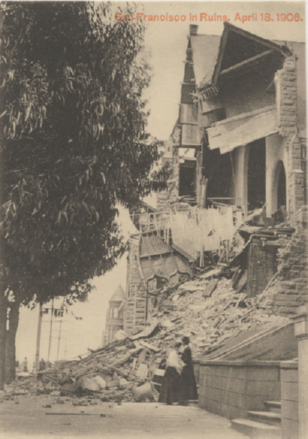Learning from mistakes

Earlier this month we marked the 104th anniversary of the San Francisco Earthquake (http://bancroft.berkeley.edu/collections/earthquakeandfire/splash.html). The anniversary brought to my mind the confluence of Mother Nature and human nature. In this event, just as with Iceland’s spectacular ash cloud(s), we are witness to events beyond human control. But when you look at the fallen buildings in the photograph to the left, you see the work of many human hands.
I wrote about earthquakes once before when I was talking about a habit of resilience. I was trying to make some space in the resilience argument for learning from the devastation before moving on. I’m helped in this by something I heard in March. I attended one of the Distinguished Lecture Series at UC Berkeley’s School of Information to see Tina Seelig, Executive Director of the Stanford Technology Ventures Program. Her topic was Entrepreneurship As An Extreme Sport.
Early on in her talk, she introduced an idea that comes from her book What I Wish I Knew When I Was 20: the Failure Resume.
Seelig reminded us that we hire people with experience, and experience means both the good and the bad. Seelig insisted that it is very important to record and learn from the bad. When you write an ordinary resume, you draw out the key accomplishments of your career to date. With a failure resume, your goal is to capture the lessons you’ve learned from your significant failures. She ended with these three points: “try lots of things, see what works, and don’t be afraid of failure.”
It seems to me that it’s getting a little harder to adopt this attitude right now, with such severe budget cutbacks. It used to be that innovation thrived in Library Land, to the extent that it did, thanks to the “lots of copies” model. In other words, there was enough innovation funding to support many explorations into a problem space, and collectively, we could afford to fail or partially succeed in a number of them, just to learn where the real winners were.
Now, in order to do the big explorations we absolutely must do, we have to band together in big consortia. So, there are fewer players, altogether. We can afford fewer losses. We’d better make sure we learn all the lessons from each mistake we make.
